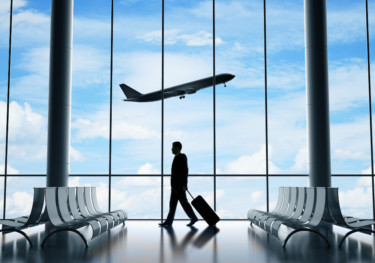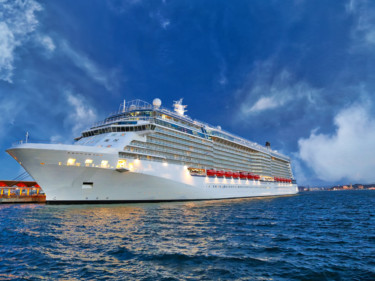Economics And Tourism are intertwined, influencing travel decisions and shaping destinations. Let SIXT.VN be your guide to navigating Vietnam, offering seamless airport transfers, diverse hotel options, and captivating tours. Discover affordable travel and enhance your Vietnam experience with our expert services.
1. What is the Relationship Between Economics and Tourism?
The relationship between economics and tourism is symbiotic; tourism significantly impacts economic growth and economic conditions influence tourism patterns. Tourism generates revenue, creates jobs, and stimulates investment, while economic factors such as income levels, exchange rates, and inflation affect travel demand and spending.
1.1 How Does Tourism Contribute to Economic Growth?
Tourism fuels economic growth through various channels. According to the Vietnam National Administration of Tourism, tourism directly contributes to the GDP, accounting for approximately 9.2% of Vietnam’s GDP in 2019 before the pandemic. This revenue stems from tourist spending on accommodation, food, transportation, entertainment, and souvenirs. Indirectly, tourism supports related industries such as agriculture, manufacturing, and construction. Moreover, tourism fosters infrastructure development, including airports, roads, and hotels, benefiting both tourists and local communities.
1.2 How Do Economic Factors Influence Tourism Decisions?
Economic factors play a crucial role in shaping tourism decisions. Income levels directly impact individuals’ ability to afford travel, with higher disposable incomes leading to increased tourism expenditure. Exchange rates affect the affordability of international travel, making destinations with favorable exchange rates more attractive to tourists. Inflation can erode purchasing power, potentially reducing travel demand or shifting preferences towards budget-friendly options.
1.3 What are the Economic Benefits of Tourism for Local Communities?
Tourism brings numerous economic benefits to local communities. It creates employment opportunities in various sectors, including hospitality, transportation, and retail. Tourism revenue can fund local infrastructure projects, such as schools, hospitals, and public transportation, improving the quality of life for residents. Additionally, tourism promotes entrepreneurship and small business development, empowering local communities and preserving cultural heritage.
2. How Does the Economy of Vietnam Affect Tourism?
Vietnam’s economic landscape significantly shapes its tourism industry. The country’s steady economic growth, increasing middle class, and strategic location contribute to its appeal as a tourist destination. However, challenges such as infrastructure limitations and income inequality also influence tourism patterns.
2.1 How Does Vietnam’s Economic Growth Influence Tourism?
Vietnam’s impressive economic growth has been a key driver of its tourism boom. According to the General Statistics Office of Vietnam, the country’s GDP has consistently grown at a rate of 6-7% in recent years, boosting incomes and increasing domestic travel. This economic prosperity has also attracted foreign investment in tourism infrastructure, leading to the development of new hotels, resorts, and attractions.
2.2 What Role Does the Middle Class Play in Vietnam’s Tourism Industry?
The burgeoning middle class in Vietnam is playing a pivotal role in the country’s tourism industry. With rising disposable incomes and greater access to credit, middle-class families are increasingly prioritizing travel and leisure activities. This trend has fueled the growth of domestic tourism and outbound travel from Vietnam to regional destinations.
2.3 How Does Vietnam’s Location Affect its Tourism Economy?
Vietnam’s strategic location in Southeast Asia makes it an ideal gateway to explore the region. Bordering China, Laos, and Cambodia, Vietnam benefits from its proximity to major tourism markets and its role as a transportation hub. Its extensive coastline, diverse landscapes, and rich cultural heritage further enhance its appeal to international tourists.
3. What Are the Key Economic Indicators Impacting Tourism in Vietnam?
Several key economic indicators influence tourism in Vietnam. These include GDP growth, inflation rates, exchange rates, employment rates, and foreign investment levels. Monitoring these indicators provides valuable insights into the health and prospects of the tourism industry.
3.1 How Does GDP Growth Influence Tourism in Vietnam?
GDP growth is a fundamental indicator of economic health and its impact on tourism is significant. Higher GDP growth typically translates to increased disposable income for households, leading to greater spending on leisure activities, including travel. A robust economy also encourages businesses to invest in tourism-related infrastructure and services, further stimulating the industry.
3.2 How Do Inflation Rates Affect Tourism Decisions in Vietnam?
Inflation rates directly impact the affordability of travel and tourism services. High inflation can erode purchasing power, making travel more expensive for both domestic and international tourists. This can lead to a decrease in tourism demand or a shift towards more budget-friendly travel options.
3.3 What is the Impact of Exchange Rates on Tourism in Vietnam?
Exchange rates play a crucial role in determining the competitiveness of Vietnam as a tourism destination. A weaker Vietnamese Dong (VND) relative to other currencies makes Vietnam more affordable for international tourists, boosting inbound tourism. Conversely, a stronger VND can make Vietnam less attractive to foreign visitors.
3.4 How Does Employment Rate Relate to the Tourism Sector in Vietnam?
The employment rate is a key indicator of the health of the labor market and its relationship to tourism is significant. A higher employment rate generally leads to increased consumer confidence and spending, including on travel and leisure activities. Additionally, the tourism sector itself is a major employer, providing jobs in hotels, restaurants, transportation, and other related industries.
3.5 What Role Does Foreign Investment Play in Vietnam’s Tourism?
Foreign investment is a vital source of capital for developing Vietnam’s tourism infrastructure and services. Investments in hotels, resorts, theme parks, and transportation networks can enhance the quality of the tourism product and attract more visitors. Foreign investment also brings expertise and technology, contributing to the modernization of the tourism industry.
 Hoi An Ancient Town, Vietnam
Hoi An Ancient Town, Vietnam
4. What Are the Current Tourism Trends in Vietnam from an Economic Perspective?
Vietnam’s tourism industry is experiencing several significant trends from an economic perspective. These include the growth of sustainable tourism, the increasing demand for experiential travel, the rise of digital tourism, and the impact of geopolitical factors.
4.1 How Does Sustainable Tourism Impact Vietnam’s Economy?
Sustainable tourism is gaining momentum in Vietnam, driven by growing environmental awareness and a desire to minimize the negative impacts of tourism. This trend has several economic implications. It encourages the development of eco-friendly accommodations, responsible tour operators, and community-based tourism initiatives. Sustainable tourism can also attract higher-spending tourists who are willing to pay more for environmentally and socially responsible experiences.
4.2 Why is Experiential Travel Growing in Popularity in Vietnam?
Experiential travel, which focuses on immersive and authentic experiences, is becoming increasingly popular in Vietnam. Tourists are seeking unique and meaningful encounters with local culture, cuisine, and nature. This trend has led to the growth of specialized tour operators offering cooking classes, homestays, trekking adventures, and cultural immersion programs.
4.3 What Role Does Digital Tourism Play in Vietnam’s Economic Development?
Digital tourism is transforming the way people plan, book, and experience travel in Vietnam. Online travel agencies (OTAs), social media platforms, and mobile apps are playing an increasingly important role in connecting tourists with destinations and services. Digital tourism creates new opportunities for businesses to reach a wider audience, streamline operations, and enhance the customer experience.
4.4 How Have Global Events Impacted Tourism in Vietnam?
Global events, such as the COVID-19 pandemic, geopolitical tensions, and economic crises, can have a significant impact on tourism in Vietnam. The pandemic led to a sharp decline in international arrivals due to travel restrictions and health concerns. Geopolitical tensions can disrupt travel patterns and deter tourists from visiting certain regions. Economic crises can reduce disposable incomes and decrease travel demand.
5. What are the Benefits of Using SIXT.VN Services for Travel in Vietnam?
SIXT.VN offers numerous benefits for travelers seeking a hassle-free and enjoyable experience in Vietnam. These include convenient airport transfers, a wide selection of hotels, expert tour guides, and personalized travel itineraries.
5.1 How Can SIXT.VN Streamline Airport Transfers?
SIXT.VN provides reliable and efficient airport transfer services, ensuring a smooth transition from the airport to your hotel. Our professional drivers will greet you upon arrival, assist with your luggage, and transport you safely and comfortably to your destination. This eliminates the stress of navigating public transportation or hailing a taxi, especially if you’re unfamiliar with the local language and customs.
5.2 How Does SIXT.VN Provide a Range of Accommodation Options?
SIXT.VN partners with a diverse network of hotels and accommodations in Vietnam, catering to various budgets and preferences. Whether you’re seeking a luxurious resort, a boutique hotel, or a budget-friendly guesthouse, SIXT.VN can help you find the perfect place to stay. Our online booking platform allows you to compare prices, read reviews, and book your accommodation with ease.
5.3 How Can SIXT.VN Enhance Your Tour Experience in Hanoi?
SIXT.VN offers a variety of guided tours in Hanoi and throughout Vietnam, led by knowledgeable and experienced local guides. Our tours provide valuable insights into the history, culture, and traditions of Vietnam, allowing you to gain a deeper appreciation for this fascinating country. Whether you’re interested in exploring ancient temples, bustling markets, or scenic landscapes, SIXT.VN has a tour to suit your interests.
5.4 Can SIXT.VN Personalize Travel Itineraries for Visitors?
SIXT.VN specializes in creating personalized travel itineraries tailored to your specific interests, preferences, and budget. Our travel experts will work closely with you to design a unique itinerary that includes the destinations, activities, and experiences that you’re most passionate about. Whether you’re planning a romantic getaway, a family vacation, or a solo adventure, SIXT.VN can help you create the trip of a lifetime.
 Hanoi Cityscape, Vietnam
Hanoi Cityscape, Vietnam
6. What Types of Tourism Services Does SIXT.VN Offer?
SIXT.VN offers a comprehensive range of tourism services to meet the diverse needs of travelers visiting Vietnam. These include airport transfers, hotel bookings, tour packages, visa assistance, and transportation rentals.
6.1 Does SIXT.VN Offer Airport Transfer Services?
SIXT.VN provides reliable and convenient airport transfer services to and from major airports in Vietnam. Our fleet of vehicles includes sedans, SUVs, and vans, ensuring comfortable transportation for individuals, families, and groups. Our drivers are professional, courteous, and fluent in English, making your arrival and departure as smooth as possible.
6.2 How Can I Book Hotels with SIXT.VN?
SIXT.VN offers a user-friendly online platform for booking hotels in Vietnam. You can search for hotels based on your preferred location, budget, amenities, and star rating. Our platform provides detailed descriptions, photos, and reviews of each hotel, allowing you to make an informed decision. We also offer competitive rates and secure online payment options.
6.3 What Tour Packages Does SIXT.VN Provide for Tourists?
SIXT.VN offers a wide variety of tour packages to explore Vietnam’s diverse attractions. Our tour packages include cultural tours, adventure tours, beach vacations, and culinary experiences. We can also customize tour packages to meet your specific interests and preferences. Our experienced tour guides will ensure that you have a memorable and enriching travel experience.
6.4 Does SIXT.VN Offer Visa Assistance for Travelers?
SIXT.VN provides visa assistance services to help travelers obtain the necessary visas to enter Vietnam. Our visa experts can guide you through the application process, provide required documents, and liaise with the Vietnamese embassy or consulate on your behalf. We strive to make the visa application process as smooth and stress-free as possible.
6.5 What Transportation Rentals Does SIXT.VN Offer?
SIXT.VN offers a range of transportation rental options to help you explore Vietnam at your own pace. We provide car rentals, motorbike rentals, and bicycle rentals, allowing you to choose the mode of transportation that best suits your needs and preferences. Our vehicles are well-maintained and insured, ensuring your safety and comfort.
7. What are Some Popular Tourist Destinations in Vietnam from an Economic Viewpoint?
Several tourist destinations in Vietnam stand out from an economic viewpoint due to their significant contributions to the country’s tourism revenue and employment. These include Hanoi, Ho Chi Minh City, Ha Long Bay, Hoi An, and Phu Quoc Island.
7.1 How Does Hanoi Contribute to Vietnam’s Tourism Economy?
Hanoi, the capital city of Vietnam, is a major contributor to the country’s tourism economy. As a cultural and historical center, Hanoi attracts a large number of domestic and international tourists. The city boasts numerous attractions, including ancient temples, colonial architecture, vibrant markets, and world-class museums. Hanoi also serves as a transportation hub for exploring northern Vietnam, further boosting its tourism revenue.
7.2 What Economic Role Does Ho Chi Minh City Play in Tourism?
Ho Chi Minh City, formerly Saigon, is Vietnam’s largest city and a major economic hub. It plays a significant role in the country’s tourism industry, attracting both leisure and business travelers. The city offers a blend of modern skyscrapers, historic landmarks, and bustling commercial districts. Ho Chi Minh City also serves as a gateway to the Mekong Delta, a popular tourism region in southern Vietnam.
7.3 Why is Ha Long Bay Important to Vietnam’s Tourism Sector?
Ha Long Bay, a UNESCO World Heritage Site, is one of Vietnam’s most iconic and popular tourist destinations. Its stunning limestone karsts, emerald waters, and picturesque islands attract millions of visitors each year. Ha Long Bay generates significant tourism revenue, supporting a wide range of businesses, including cruise operators, hotels, restaurants, and souvenir shops.
7.4 How Does Hoi An Impact Vietnam’s Tourism Revenue?
Hoi An, an ancient trading port, is a charming and well-preserved town that attracts tourists with its unique architecture, tailor shops, and delicious cuisine. The town’s historic center is a UNESCO World Heritage Site, attracting visitors from around the world. Hoi An generates substantial tourism revenue, contributing to the economic development of the region.
7.5 What is the Economic Impact of Phu Quoc Island on Vietnam’s Tourism?
Phu Quoc Island, located off the coast of southern Vietnam, is a rapidly growing tourism destination. With its pristine beaches, clear waters, and lush tropical forests, Phu Quoc attracts tourists seeking a relaxing beach vacation. The island has experienced significant investment in tourism infrastructure, including new hotels, resorts, and an international airport, boosting its tourism revenue and creating employment opportunities.
 Ha Long Bay, Vietnam
Ha Long Bay, Vietnam
8. How Can You Travel Economically in Vietnam?
Traveling economically in Vietnam is entirely possible with some careful planning and resourcefulness. Opting for local transportation, eating at street food stalls, and staying in budget-friendly accommodations can significantly reduce your expenses.
8.1 What Are Some Ways to Use Local Transport for Economical Travel?
Local transportation options in Vietnam are generally very affordable. Buses are a convenient and economical way to travel between cities and towns. Within cities, you can use xe om (motorbike taxis) or cyclo (pedicabs) for short distances. Negotiate the fare beforehand to avoid overcharging.
8.2 How Does Street Food Save Money While Traveling in Vietnam?
Street food is a delicious and budget-friendly way to experience Vietnamese cuisine. Street food stalls offer a wide variety of dishes, such as pho (noodle soup), banh mi (sandwiches), and spring rolls, at very reasonable prices. Eating at street food stalls also allows you to immerse yourself in the local culture and interact with Vietnamese people.
8.3 What Types of Accommodation are Budget Friendly in Vietnam?
Budget-friendly accommodation options in Vietnam include hostels, guesthouses, and homestays. Hostels offer dormitory-style rooms at very affordable prices, while guesthouses provide private rooms with basic amenities. Homestays allow you to stay with local families, offering a unique cultural experience and often including meals.
8.4 Are There Specific Times of the Year That Travel to Vietnam Is More Affordable?
The shoulder seasons, typically from March to May and September to November, offer a good balance between pleasant weather and affordable prices. During these months, you can avoid the peak season crowds and high prices while still enjoying comfortable temperatures and minimal rainfall.
9. What Are the Economic Challenges Facing Tourism in Vietnam?
Despite its impressive growth, Vietnam’s tourism industry faces several economic challenges. These include infrastructure limitations, environmental concerns, and competition from neighboring countries.
9.1 What Impact Do Infrastructure Limitations Have on Tourism in Vietnam?
Infrastructure limitations, such as inadequate transportation networks and outdated facilities, can hinder the growth of tourism in Vietnam. Poor roads, congested airports, and limited accommodation options can deter tourists and reduce their overall experience. Addressing these infrastructure gaps is crucial for sustaining tourism growth.
9.2 How Does the Environment Impact Tourism Economics in Vietnam?
Environmental concerns, such as pollution, deforestation, and unsustainable tourism practices, pose a threat to Vietnam’s natural attractions and tourism industry. Protecting the environment is essential for preserving the beauty and appeal of Vietnam’s destinations and ensuring the long-term sustainability of tourism.
9.3 How Can Vietnam Remain Competitive in the Southeast Asia Tourism Market?
Competition from neighboring countries, such as Thailand, Malaysia, and Singapore, is a constant challenge for Vietnam’s tourism industry. To remain competitive, Vietnam needs to differentiate its tourism products, enhance its marketing efforts, and improve the quality of its services.
10. What is the Future Outlook for Economics and Tourism in Vietnam?
The future outlook for economics and tourism in Vietnam is positive, driven by continued economic growth, increasing domestic and international demand, and government support for the tourism sector. However, addressing the challenges outlined above will be crucial for realizing the full potential of Vietnam’s tourism industry.
10.1 What Role Will the Government Play in Shaping Tourism Economics?
The Vietnamese government plays a vital role in shaping the tourism economics of the country. Government policies, such as visa regulations, infrastructure investments, and marketing campaigns, can significantly impact the growth and development of the tourism industry. Continued government support and strategic planning are essential for sustaining tourism growth.
10.2 How Will Sustainable Tourism Practices Influence Future Tourism in Vietnam?
Sustainable tourism practices will play an increasingly important role in shaping the future of tourism in Vietnam. As environmental awareness grows, tourists will demand more responsible and eco-friendly travel options. Businesses that adopt sustainable practices will be well-positioned to attract these environmentally conscious travelers and contribute to the long-term sustainability of Vietnam’s tourism industry.
10.3 What Innovations are on the Horizon for Vietnamese Tourism?
Several innovations are on the horizon for Vietnamese tourism. These include the development of smart tourism technologies, the expansion of ecotourism offerings, and the promotion of cultural tourism experiences. Embracing these innovations will help Vietnam enhance its tourism product and attract a wider range of visitors.
Ready to experience the wonders of Vietnam? Let SIXT.VN be your trusted travel partner! Contact us today for personalized travel itineraries, reliable airport transfers, and expert tour guides. Visit our website at SIXT.VN or call us at +84 986 244 358. Our address is 260 Cau Giay, Hanoi, Vietnam.
 Vietnamese Woman Selling Food
Vietnamese Woman Selling Food
FAQ About Economics and Tourism in Vietnam
1. How does tourism impact the job market in Vietnam?
Tourism significantly boosts the job market in Vietnam by creating numerous opportunities in hospitality, transportation, and local businesses, contributing to economic growth.
2. What economic policies support tourism growth in Vietnam?
The Vietnamese government supports tourism growth through policies promoting infrastructure development, easing visa regulations, and investing in tourism marketing campaigns.
3. Can economic downturns affect tourism in Vietnam?
Yes, economic downturns can reduce travel demand due to decreased disposable income and increased travel costs, impacting Vietnam’s tourism revenue.
4. What is the role of foreign exchange rates in Vietnam’s tourism sector?
Favorable foreign exchange rates make Vietnam more affordable for international tourists, boosting inbound tourism, while unfavorable rates can decrease tourist numbers.
5. How does local culture contribute to tourism economics in Vietnam?
Local culture enhances tourism economics by attracting tourists interested in authentic experiences, supporting local artisans, and driving revenue through cultural events and heritage sites.
6. What are the environmental costs associated with tourism in Vietnam?
Environmental costs include pollution, habitat destruction, and resource depletion, which can degrade natural attractions and negatively affect Vietnam’s long-term tourism sustainability.
7. How does seasonality impact tourism-related businesses in Vietnam?
Seasonality leads to fluctuating revenues for tourism businesses, with peak seasons bringing high profits and off-seasons causing financial strain, requiring businesses to adapt and plan accordingly.
8. What role do small businesses play in Vietnam’s tourism economy?
Small businesses are crucial, providing diverse services like accommodations, food, and tours, which enhance the tourist experience and distribute economic benefits throughout local communities.
9. How does infrastructure development affect Vietnam’s tourism industry?
Improved infrastructure, such as better roads and airports, enhances accessibility and tourist comfort, leading to increased visitation and supporting the growth of Vietnam’s tourism sector.
10. What are the key strategies for sustainable tourism development in Vietnam?
Key strategies include promoting eco-friendly practices, preserving cultural heritage, engaging local communities, and implementing policies that minimize environmental impact while maximizing economic benefits.



